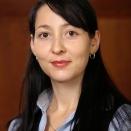DGAP hosts second EU-Russia think tank dialogue workshop
The German Council on Foreign Relations hosted the second EU-Russia Think Tank Dialogue on April 6 in Berlin, an initiative of the EU Delegation to Moscow in cooperation with the Russian International Affairs Council (RIAC) and the EU Institute for Security Studies (EUISS). The initiative's main aim is to improve dialogue between Russian and EU think tanks and discuss the future of EU-Russia relations.
The main topics under discussion were the mistakes made on the European and Russian sides with regard to the current crisis as well as the Minsk Process, the situation in Syria, and possible cooperation between the EU and Russia. The many experts from Russia and various EU member states in attendance were joined by Vygaudas Ušackas, EU Ambassador to the Russian Federation, and Alfredo Conte, Head of the Strategic Planning Division of the European External Action Service. Markus Ederer, State Secretary at the German Foreign Office, and Igor Ivanov, former Russian Minister of Foreign Affairs and president of RIAC opened the meeting, which was organized by the DGAP’s Robert Bosch Center Central and Eastern Europe, Russia, and Central Asia.
Press Release
Berlin, April 7, 2016
European Union and Russian experts meet in Berlin for a second roundtable on the future of EU–Russia relations
European Union and Russian experts met in Berlin on Friday, April 6, 2016 to continue discussions on the state of relations between Russia and the European Union. The one-day event was hosted by the German Council on Foreign Relations (DGAP) and was the second in a series of such meetings scheduled for 2016 as part of an initiative spearheaded by the EU Delegation to the Russian Federation.
The Berlin meeting, which was held under the Chatham House Rule, looked back at the past events and their impact on the current state of relations, and tackled such themes as the Ukrainian and Syrian conflicts. The EU and Russian delegates were joined at the meeting by an expert from Ukraine. In a separate dedicated session, the Head of the Strategic Planning Division in the European External Action Service, Alfredo Conte, presented outlines of the EU global strategy, which was further discussed by both sides.
The Berlin meeting drew on the understanding reached during the kick-off event held in Moscow by the Russian International Affairs Council (RIAC) in February, which had an exploratory character. The event in Berlin is a joint effort by the host, DGAP, RIAC, and the European Union Institute for Security Studies (EUISS), supported by the EU Delegation in Moscow. Two further meetings are planned at short intervals later this year as part of efforts to sustain effective communication channels and to overcome obstacles in continuing constructive dialogue between Russia and the EU at a difficult time in relations.
The EU Delegation’s initiative is aimed at creating an operative framework of co-operation between EU and Russian experts on EU-Russia relations with the view to a longer-term engagement. A similar initiative, also led by the Moscow EU delegation, is being launched in the area of the media, with meetings and workshops between Russian journalists and their EU colleagues. The first such meeting devoted to the safety of journalists in digital age is taking place in London at the end of April.
(MB, on behalf of the EU Delegation to the Russian Federation)

